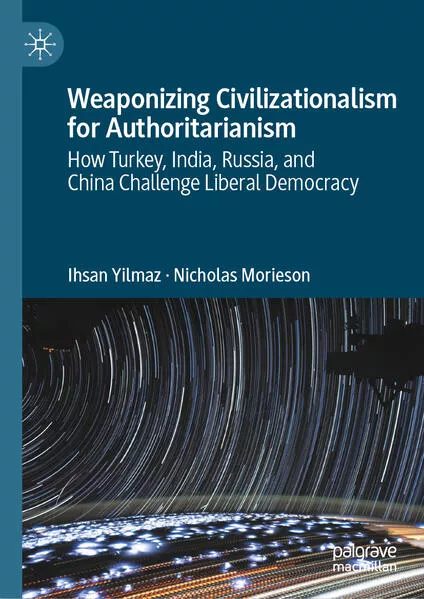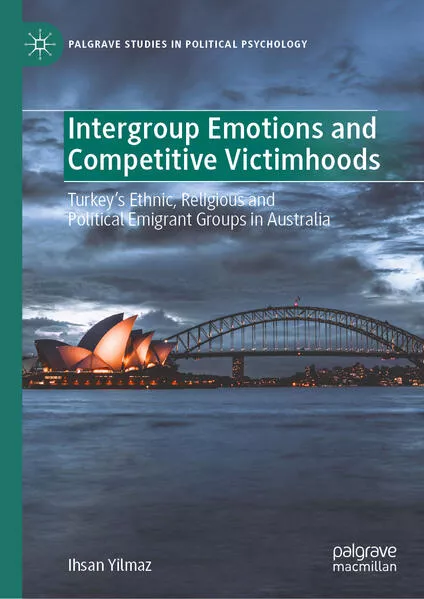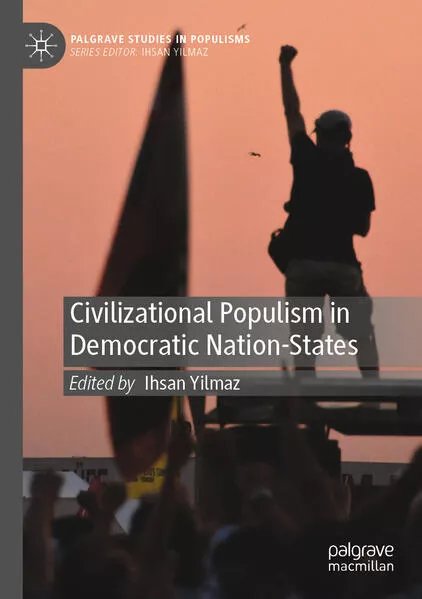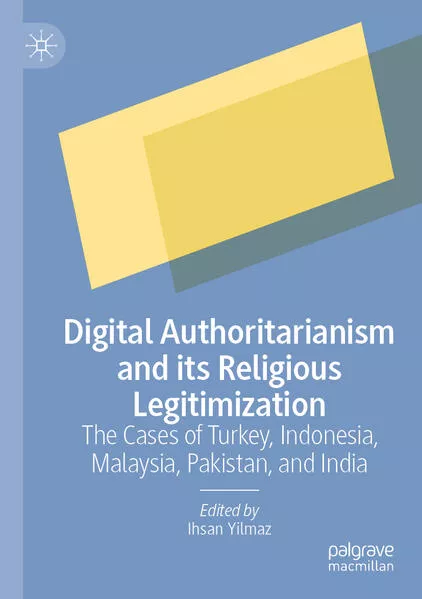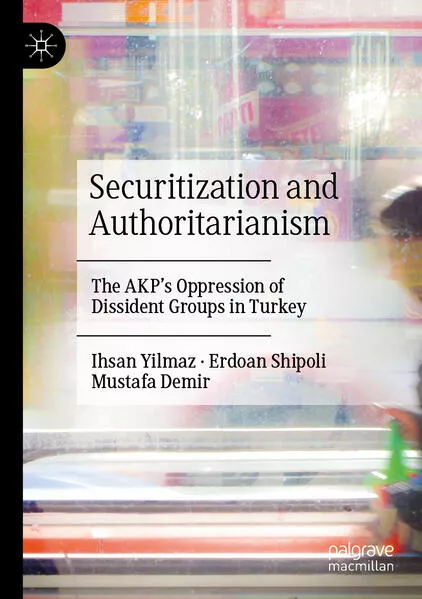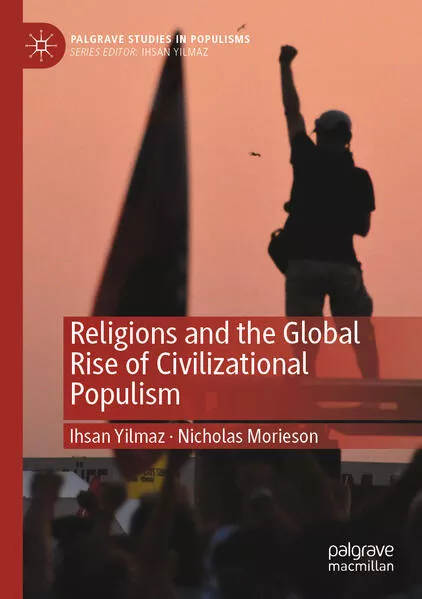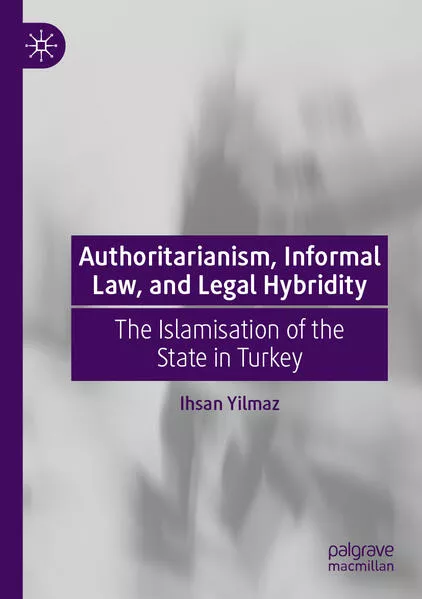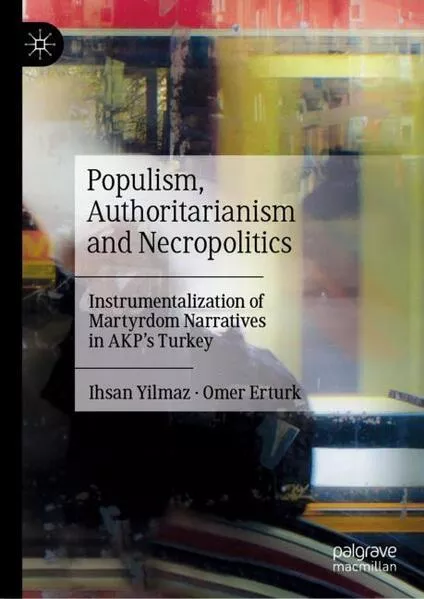
- Publikationen ca: 31
- Fragen & Antworten
Ihsan Yilmaz
Ihsan Yilmaz is the Research Professor and Chair of Islamic Studies and Intercultural Dialogue at the Alfred Deakin Institute for Citizenship and Globalisation, Deakin University, Melbourne, Australia. He has conducted mixed-method research on nation-building, citizenship, Islam–state–law relations in majority and minority contexts (Turkey, Pakistan, Egypt, Indonesia, UK, USA and Australia), authoritarianism, Islamism, populism, transnationalism, ethno-religious and political minorities, securitisation, political participation and intergroup relations. He was Professor of Political Science at Istanbul Fatih University (2008-2016), Lecturer in Law, Social Sciences and Politics at SOAS, University of London (2001-2008), and a fellow at Centre for Islamic Studies, the University of Oxford (1999-2001).
Ismail Albayrak is the Professorial Fellow at the Australian Catholic University, Melbourne. He has worked on Islamic studies and specifically on Qur’anic Studies, Classical Exegesis, Contemporary Approaches to the Qur’an and Orientalism. He is also interested in the place of Muslim communities and their activities in globalizing world together with a focus on interfaith dialogue. In line with these areas of interest, he has built a strong teaching and research track record in the study of Islam and complementary understanding of interfaith principles. His recent publications have focused on Islamic studies, Qur’anic studies, Interfaith dialogue, Muslims in modern world, Islamic movements and Islamic mysticism.
Weaponizing Civilizationalism for Authoritarianism
This book, based on a systematic analysis of leaders' speeches, examines how regimes in Turkey, India, Russia, and China strategically weaponize the concept of 'civilization' along with emotional appeals, such as pride, fear, and nostalgia, to challenge global liberal democratic norms.
Weaponizing Civilizationalism for Authoritarianism
This book, based on a systematic analysis of leaders' speeches, examines how regimes in Turkey, India, Russia, and China strategically weaponize the concept of 'civilization' along with emotional appeals, such as pride, fear, and nostalgia, to challenge global liberal democratic norms.
Intergroup Emotions and Competitive Victimhoods
This book examines the narratives and collective emotions of diaspora groups who originate from Turkey and now live in Australia, focusing on their experiences of collective victimhood, competitive victimhood, and intergroup emotions in relation to other diaspora groups from Turkey.
Intergroup Emotions and Competitive Victimhoods
This book examines the narratives and collective emotions of diaspora groups who originate from Turkey and now live in Australia, focusing on their experiences of collective victimhood, competitive victimhood, and intergroup emotions in relation to other diaspora groups from Turkey.
Populist Identification in Public Discourse
Based on semi-structured interviews with ordinary citizens in Pakistan, this book analyses the complex relationship between populism, political identity, and historical experiences in Pakistan, highlighting how populist discourse influences and is influenced by varied interpretations of Pakistaniat - the identification with Pakistan.
Populist Identification in Public Discourse
Based on semi-structured interviews with ordinary citizens in Pakistan, this book analyses the complex relationship between populism, political identity, and historical experiences in Pakistan, highlighting how populist discourse influences and is influenced by varied interpretations of Pakistaniat - the identification with Pakistan.
Reception of Soft and Sharp Powers
This book examines the projection of soft and sharp powers through the Turkish civilizational populist TV series "Resurrection: Ertugrul" and its reception in Pakistan. By analyzing the content of the series, elite responses, interviews with ordinary Pakistanis, and Pakistani cyberspace, the book argues that beyond soft power, the show exerts Turkey’s sharp power transnationally, through themes of authoritarianism, violence, warfare, desire for killing and dying, Islamist collective victimhood, conspiracy theories and anti-Christian sentiments.
Reception of Soft and Sharp Powers
This book examines the projection of soft and sharp powers through the Turkish civilizational populist TV series "Resurrection: Ertugrul" and its reception in Pakistan. By analyzing the content of the series, elite responses, interviews with ordinary Pakistanis, and Pakistani cyberspace, the book argues that beyond soft power, the show exerts Turkey’s sharp power transnationally, through themes of authoritarianism, violence, warfare, desire for killing and dying, Islamist collective victimhood, conspiracy theories and anti-Christian sentiments.
Civilizational Populism in Democratic Nation-States
This edited book examines the growing worldwide phenomenon of civilizational populism in democratic nation-states and brings together research that explores this in a wide variety of religious, political, and geographic contexts. In doing so, the book shows how, from Europe to India and Pakistan, and from Indonesia to the Americas, populists increasingly define national belonging through civilizational identity, claiming that the world can be divided into several religion-defined civilizations with incompatible values.
Digital Authoritarianism and its Religious Legitimization
This book explores how digital authoritarianism operates in India, Pakistan, Turkey, Indonesia, and Malaysia, and how religion can be used to legitimize digital authoritarianism within democracies. In doing so, it explains how digital authoritarianism operates at various technological levels including sub-network level, proxy level, and user level, and elaborates on how governments seek to control cyberspace and social media.
Islam in the Anglosphere
Using semi-structured interviews with 122 young Muslims in Australia, the United Kingdom (UK) and the United States of America (USA) from diverse ethnic backgrounds, this book investigates the lived reality of young Muslims from their own perspectives.
Securitization and Authoritarianism
This book focuses on securitization and authoritarianism in Turkey with research on the country’s Islamist populist ruling party’s (AKP) oppression of different socio-political, ethnic and religious groups. In doing so, it analyzes how the AKP has securitized to oppress different socio-political groups and identities, according to the time and need for the party's political survival.
Religions and the Global Rise of Civilizational Populism
This books explores the rise of civilizational populism throughout the world, and its consequences. Civilizational populism posits that democracy ought to be based upon enacting the ‘people’s will’, yet it adds a new and troubling dimension to populism’s thin ideology: a civilization based classification of peoples and division of society.
Digital Authoritarianism and its Religious Legitimization
This book explores how digital authoritarianism operates in India, Pakistan, Turkey, Indonesia, and Malaysia, and how religion can be used to legitimize digital authoritarianism within democracies. In doing so, it explains how digital authoritarianism operates at various technological levels including sub-network level, proxy level, and user level, and elaborates on how governments seek to control cyberspace and social media.
Islam in the Anglosphere
Using semi-structured interviews with 122 young Muslims in Australia, the United Kingdom (UK) and the United States of America (USA) from diverse ethnic backgrounds, this book investigates the lived reality of young Muslims from their own perspectives.
Civilizational Populism in Democratic Nation-States
This edited book examines the growing worldwide phenomenon of civilizational populism in democratic nation-states and brings together research that explores this in a wide variety of religious, political, and geographic contexts. In doing so, the book shows how, from Europe to India and Pakistan, and from Indonesia to the Americas, populists increasingly define national belonging through civilizational identity, claiming that the world can be divided into several religion-defined civilizations with incompatible values.
Civilizational Populism in Democratic Nation-States
This edited book examines the growing worldwide phenomenon of civilizational populism in democratic nation-states and brings together research that explores this in a wide variety of religious, political, and geographic contexts. In doing so, the book shows how, from Europe to India and Pakistan, and from Indonesia to the Americas, populists increasingly define national belonging through civilizational identity, claiming that the world can be divided into several religion-defined civilizations with incompatible values.
Digital Authoritarianism and its Religious Legitimization
This book explores how digital authoritarianism operates in India, Pakistan, Turkey, Indonesia, and Malaysia, and how religion can be used to legitimize digital authoritarianism within democracies. In doing so, it explains how digital authoritarianism operates at various technological levels including sub-network level, proxy level, and user level, and elaborates on how governments seek to control cyberspace and social media.
Islam in the Anglosphere
Using semi-structured interviews with 122 young Muslims in Australia, the United Kingdom (UK) and the United States of America (USA) from diverse ethnic backgrounds, this book investigates the lived reality of young Muslims from their own perspectives.
Securitization and Authoritarianism
This book focuses on securitization and authoritarianism in Turkey with research on the country’s Islamist populist ruling party’s (AKP) oppression of different socio-political, ethnic and religious groups. In doing so, it analyzes how the AKP has securitized to oppress different socio-political groups and identities, according to the time and need for the party's political survival.
Securitization and Authoritarianism
This book focuses on securitization and authoritarianism in Turkey with research on the country’s Islamist populist ruling party’s (AKP) oppression of different socio-political, ethnic and religious groups. In doing so, it analyzes how the AKP has securitized to oppress different socio-political groups and identities, according to the time and need for the party's political survival.
Authoritarianism, Informal Law, and Legal Hybridity
This book investigates Turkey’s departure from a ‘flawed democracy’ under Kemalist secularism, and its transitioning into Islamist authoritarian Erdoğanism, through the lenses of informal law, legal pluralism, and legal hybridity. In doing so, it examines the attempts of Turkey’s ruling party (AKP) at social engineering and gradual Islamisation of the Turkish state and society, by using informal Islamist laws.
Populism, Authoritarianism and Necropolitics
This book examines how Turkey’s ruling party, the Justice and Development Party (AKP), under the leadership of Recep Tayyip Erdoğan produces and employs necropolitical narratives in order to perpetuate its authoritarian rule.In doing so, the book argues that as the party transitioned from socially conservative Muslim democratic values to authoritarian Islamism, it embraced a necropolitical narrative based on the promotion of martyrdom, and of killing and dying for the Turkish nation and Islam, as part of their authoritarian legitimation.
Populism, Authoritarianism and Necropolitics
This book examines how Turkey’s ruling party, the Justice and Development Party (AKP), under the leadership of Recep Tayyip Erdoğan produces and employs necropolitical narratives in order to perpetuate its authoritarian rule.In doing so, the book argues that as the party transitioned from socially conservative Muslim democratic values to authoritarian Islamism, it embraced a necropolitical narrative based on the promotion of martyrdom, and of killing and dying for the Turkish nation and Islam, as part of their authoritarian legitimation.
Religions and the Global Rise of Civilizational Populism
This books explores the rise of civilizational populism throughout the world, and its consequences. Civilizational populism posits that democracy ought to be based upon enacting the ‘people’s will’, yet it adds a new and troubling dimension to populism’s thin ideology: a civilization based classification of peoples and division of society.
Religions and the Global Rise of Civilizational Populism
This books explores the rise of civilizational populism throughout the world, and its consequences. Civilizational populism posits that democracy ought to be based upon enacting the ‘people’s will’, yet it adds a new and troubling dimension to populism’s thin ideology: a civilization based classification of peoples and division of society.
Populist and Pro-Violence State Religion
This book explores state–religion relations under a populist authoritarian ruling party in Turkey. In doing so, it investigates how the ruling Justice and Development Party (AKP) instrumentalizes state-controlled religion to further, defend, legitimatize and propagate its authoritarian populist political agenda in a constitutionally secular nation-state.
Authoritarianism, Informal Law, and Legal Hybridity
This book investigates Turkey’s departure from a ‘flawed democracy’ under Kemalist secularism, and its transitioning into Islamist authoritarian Erdoğanism, through the lenses of informal law, legal pluralism, and legal hybridity. In doing so, it examines the attempts of Turkey’s ruling party (AKP) at social engineering and gradual Islamisation of the Turkish state and society, by using informal Islamist laws.
Authoritarianism, Informal Law, and Legal Hybridity
This book investigates Turkey’s departure from a ‘flawed democracy’ under Kemalist secularism, and its transitioning into Islamist authoritarian Erdoğanism, through the lenses of informal law, legal pluralism, and legal hybridity. In doing so, it examines the attempts of Turkey’s ruling party (AKP) at social engineering and gradual Islamisation of the Turkish state and society, by using informal Islamist laws.
Populist and Pro-Violence State Religion
This book explores state–religion relations under a populist authoritarian ruling party in Turkey. In doing so, it investigates how the ruling Justice and Development Party (AKP) instrumentalizes state-controlled religion to further, defend, legitimatize and propagate its authoritarian populist political agenda in a constitutionally secular nation-state.
Populist and Pro-Violence State Religion
This book explores state–religion relations under a populist authoritarian ruling party in Turkey. In doing so, it investigates how the ruling Justice and Development Party (AKP) instrumentalizes state-controlled religion to further, defend, legitimatize and propagate its authoritarian populist political agenda in a constitutionally secular nation-state.
